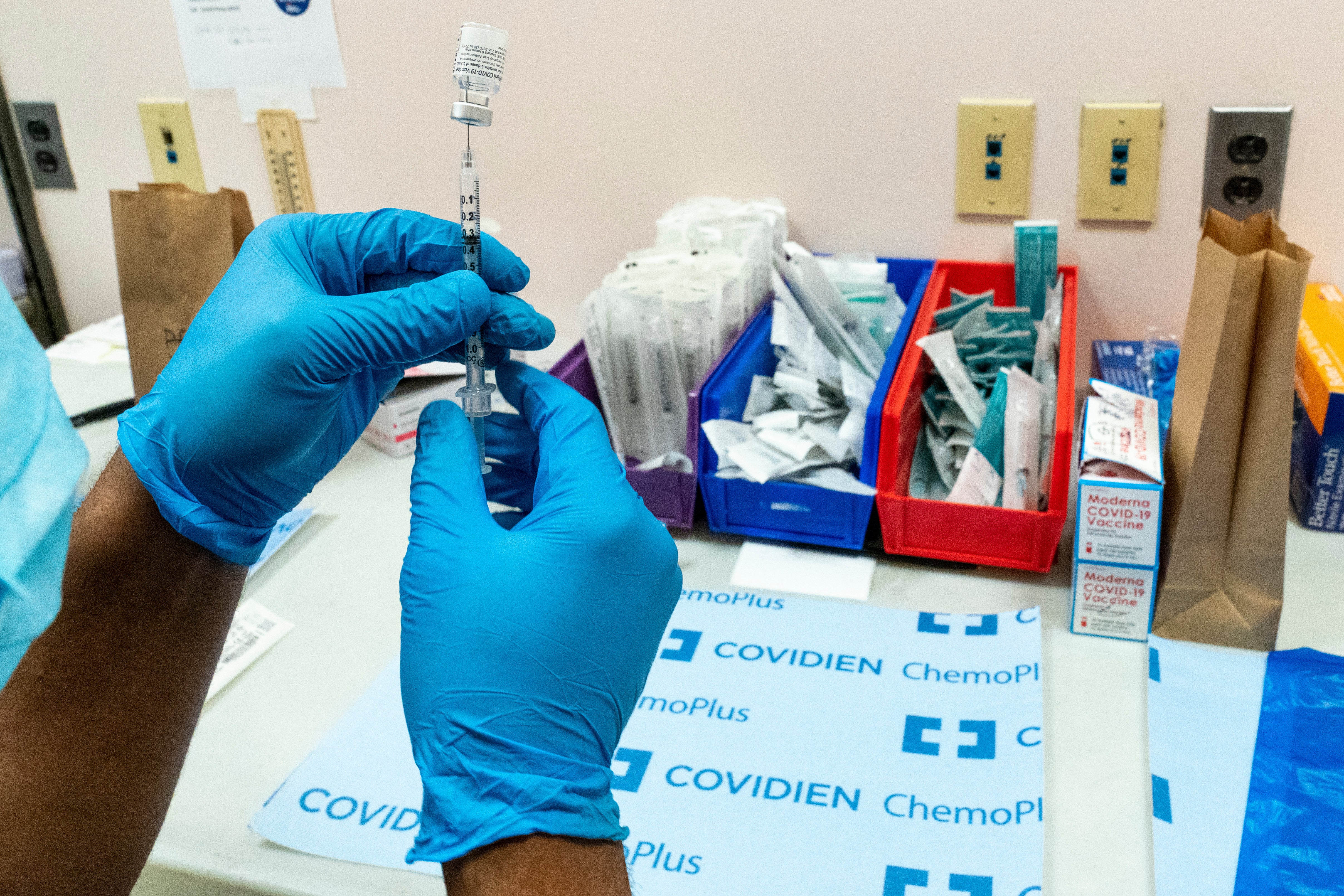VIRUS TODAY: Winter weather impacting U.S. vaccination plans
The White House is scrambling to find ways around Mother Nature as frigid temperatures, snow and icy conditions have delayed delivery of COVID-19 vaccines and canceled appointments for inoculations across the country

Your support helps us to tell the story
From reproductive rights to climate change to Big Tech, The Independent is on the ground when the story is developing. Whether it's investigating the financials of Elon Musk's pro-Trump PAC or producing our latest documentary, 'The A Word', which shines a light on the American women fighting for reproductive rights, we know how important it is to parse out the facts from the messaging.
At such a critical moment in US history, we need reporters on the ground. Your donation allows us to keep sending journalists to speak to both sides of the story.
The Independent is trusted by Americans across the entire political spectrum. And unlike many other quality news outlets, we choose not to lock Americans out of our reporting and analysis with paywalls. We believe quality journalism should be available to everyone, paid for by those who can afford it.
Your support makes all the difference.Here's what's happening Friday with the coronavirus pandemic in the U.S.:
THREE THINGS TO KNOW TODAY
— The White House is scrambling to find ways around Mother Nature as frigid temperatures, snow and ice have dealt the first major set back to the Biden administration s planned swift rollout of coronavirus vaccines The administration is working with states to make up for “lost ground” even as President Joe Biden planned to visit a Pfizer vaccine manufacturing plant in Kalamazoo, Michigan. The president’s trip itself had been pushed back a day to Friday due to wintry weather in the nation’s capital.
— Sales of previously occupied U.S. homes rose again last month, a sign that the housing market’s strong momentum from 2020 may be carrying over into this year. The housing market has mounted a strong comeback since last summer after declining sharply in the spring when the coronavirus outbreak hit. Existing U.S. home sales rose 0.6% in January from the previous month to a seasonally-adjusted rate of 6.69 million annualized units, the National Association of Realtors said Friday. It was the strongest sales pace since October. Sales surged last year to the highest level since 2006 at the height of the housing boom.
— Minnesota Gov. Tim Walz said state residents have received more than 1 million doses of coronavirus vaccine. Updated figures show that Minnesota health care providers have administered 1,016,210 doses. The governor’s office said 728,081 Minnesotans have received at least one dose, including 286,543 who’ve completed the two-dose series. The seven-day rolling average of doses administered is now 29,705, a pace that has been picking up as limited supplies have allowed.
___
THE NUMBERS: According to data from Johns Hopkins University, there were 69,230 new COVID-19 cases and 2,452 deaths in the United States on Thursday. The record high for new cases was 300,282 on Jan. 2 and the record high for deaths was 5,443 on Feb. 12.
DEATH TOLL: The total number of deaths from COVID-19 in the U.S. reached 493,718.
QUOTABLE: “Our city is ready to administer COVID-19 vaccines swiftly, safely, and equitably — and as soon as doses arrive in Los Angeles, we will get them into people’s arms immediately,” Los Angeles Mayor Eric Garcetti said in a statement.
ICYMI: If you were hoping to catch a show at Carnegie Hall this season, you're out of luck. The venerable concert hall said it was calling off an entire season for the first time in its 130-year history because of the ongoing coronavirus pandemic. The storied New York City venue has canceled performances from April 6 through July to extend a closure that started March 13 soon after the virus began taking hold in the United States. Carnegie Hall hopes to reopen in October for the 2021-22 season.
ON THE HORIZON: New data indicate the COVID-19 vaccine developed by Pfizer and German partner BioNTech could be stored for two weeks without the ultracold storage currently required, potentially making its use a bit easier. The companies said Friday they’ve submitted findings from ongoing stability testing to the U.S. Food and Drug Administration, which has authorized the vaccine’s emergency use in the U.S., and will send the data to regulators around the world in the next few weeks.
___
Find AP’s full coverage of the coronavirus pandemic at https://apnews.com/hub/coronavirus-pandemic